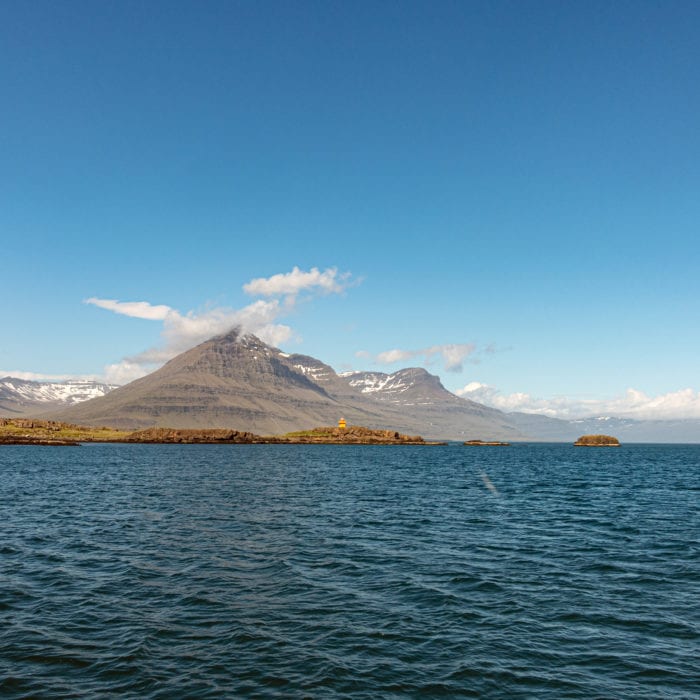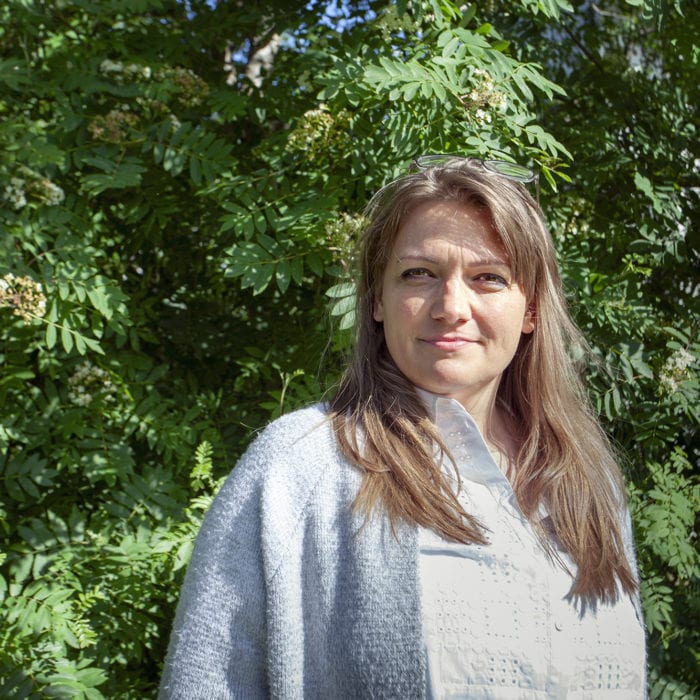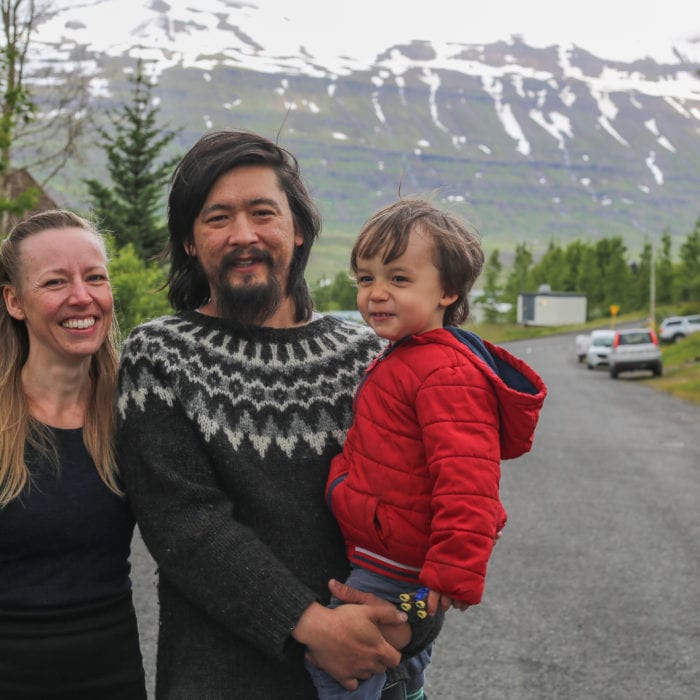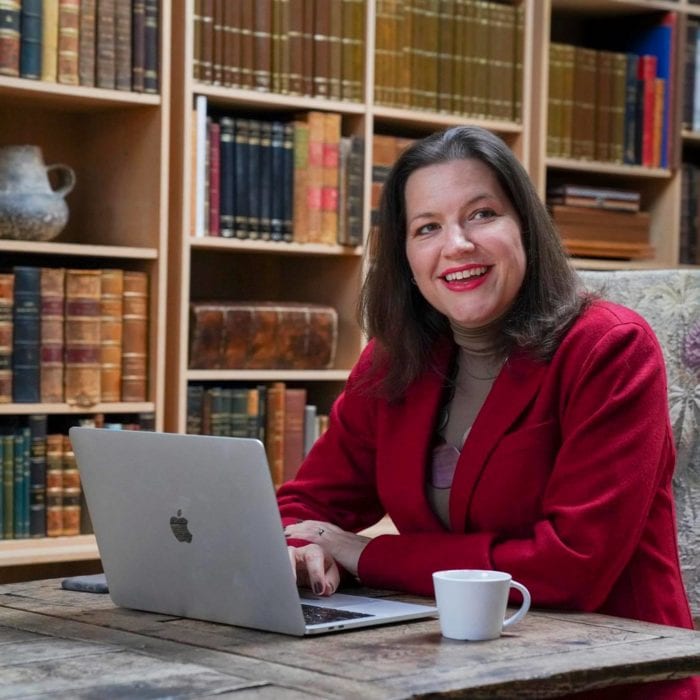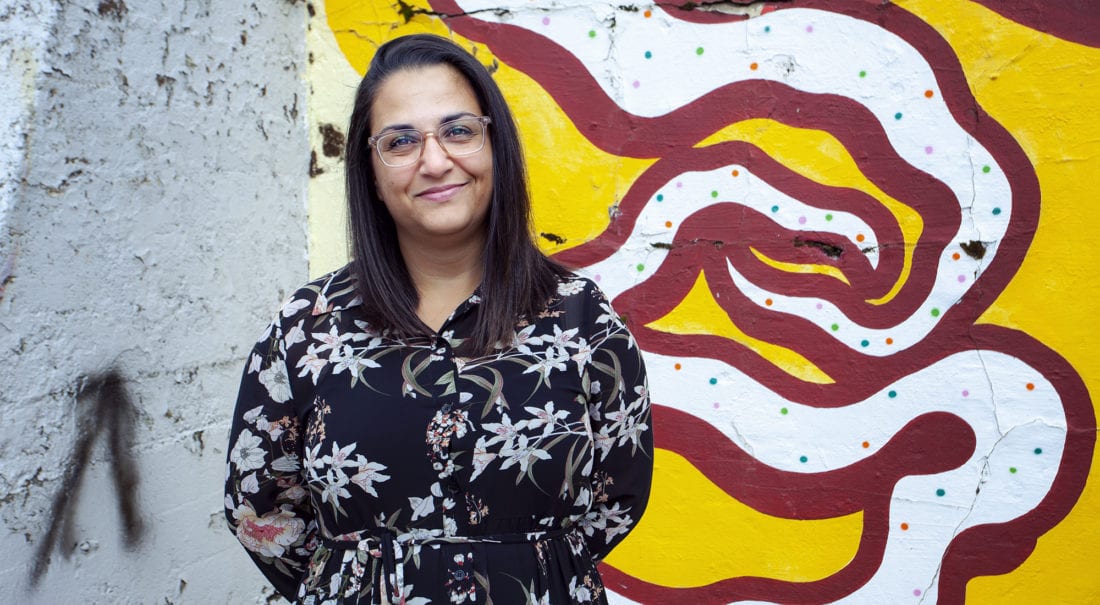
I am part of the group
Wala Abu Libdeh is from Palestine but she has lived in Iceland for 25 years, since she was 10 years old. Iceland was very different in 1995, the year Wala moved to Iceland, there were no welcoming programs, no programs for immigrant students and the only way in was to double down and do your best.
„I arrived with my siblings and mother in January 1995 and I couldn’t start school right away because there was a teachers’ strike,” says Wala. Her uncle had arrived in Iceland sometime before. The ground was covered in snow when they arrived, something they had never seen before with their own eyes. They lived with her uncle for 3 months before moving to Kópavogur. In September, she was finally able to start school:
“I just showed up for school like everybody else in the fall,” she says. “I remember the classroom was open, you walked in and waited for the teacher. When the teacher arrived, I stood up, as I thought we were supposed to do, but nobody else stood up and I couldn’t understand why! The teacher sat down and told me to sit down, that this wasn’t customary in Iceland. This was very different for me. I attended an all-girls school in Palestine but in Iceland I was in a mixed class and I was also accustomed to a lot more discipline. I was not allowed to look at the teacher in Palestine and I wasn’t allowed to address him without his permission. You weren’t really allowed to do anything!”
There was no particular program for students coming from abroad and Wala had to cope with being effectively mute for the first few months. “I had no idea what was happening in class,” she says. “I heard my classmates speak and I just nodded but thankfully I was quick to learn the language. That wasn’t necessarily a blessing because as soon as the school saw how well I was doing learning Icelandic, they expected more of me. I arrived at school in 5th grade not knowing a word in Icelandic and in 6th grade I was expected to learn Danish! And I can’t deny that it was quite difficult.”
Wala studied hard and was a self-described model student for the first two years. “The school expected me to be like the other students. I was rarely given special lessons, I just went home after school and studied. I always had a thick dictionary next to me. I translated from Icelandic to English and from English to Arabic and tried to fill in the blanks with guesswork if needed. But after two years, I couldn’t be bothered to keep it up any longer,” she says in all honesty.
She says it was a time where she relaxed in school and tried to live a “normal” life. “I just wanted to be like everybody else,” she says. “I wanted to go outside, play football and do all the stuff the other kids were doing. I wasn’t a model student anymore, rather the naughty kid and couldn’t be bothered with studying anymore. Or rather, I could be bothered to, but it was so demanding for me to learn what my Icelandic classmates had no trouble learning.”
A turning point
2006 was a year of big changes for Wala. Her childhood friend moved to Neskaupstaður and spoke highly of it, it was a good place to live according to her. “It sounded so peaceful and cosy so I just decided to move to Austurland with her. The first three months were very quiet, to say the least, I felt like there was nobody here and I kind of wanted to go back home to Kópavogur!”
But she didn’t. Instead, she enrolled in Verkmenntaskóli Austurlands (VA) to study hairdressing. She finished the first three semesters and all was going well. “It was a great relief to see that I could study,” she says. “But I would have had to go back south to finish my studies so I quit school and another chapter in my life began. I met a man and had a baby. I had a family and went back to work.”
In 2017 Wala was contacted regarding asylum seekers arriving in Reyðarfjörður and she was asked to manage a learning program for immigrants. “I was really nervous about it,” she says. “But I decided to give it a go. I got to know great teachers in Reyðarfjörður and thought to myself that this was who I wanted to be. I enrolled in the Learning Support Assistant program in VA, finished it and then enrolled in Educational Studies in the University of Akureyri.”
Study material needs to be simplified
When Wala looks back, she says that on the whole, immigrant students do well in elementary school but then they get “lost” in the secondary schools and it’s difficult for them to keep up with the other students. “The study material needs to be simplified for the foreign students,” she says. “They should meet the same criteria but the material needs to be adjusted. It is so difficult when Icelandic is not your native language and it is so demanding for the students that they are at a greater risk of giving up.”
“I always felt like I was part of the group,” says Wala. “I consider myself an Icelander, I am married to an Icelander and I have three children. And I’m not afraid to talk to people. I talk to everybody. I do however understand when kids – and adults – arrive here and have a hard time adjusting because it is difficult and it is challenging, exemplified by my own experience of the school system. We need to work harder than others to achieve the same results as the natives. Simpler study materials would be a gesture of the community adjusting to immigrants which is the key to good relations between people of different backgrounds. It isn’t just immigrants that need to adjust to the Icelandic community. It is also a question of the community adjusting to us.”
Photo of Wala: Esther Ösp Gunnarsdóttir.
Text: Jón Knútur Ásmundsson.
This article is from a special edition of Austurglugginn dedicated to the foreign-born residents of Austurland. The publication is a part of a bigger project hosted within Austurbrú called Voices of foreign-born people in Austurland. It aims to raise awareness of the experiences of the foreign-born population in the region. Our partners in this project are: AFL, Red Cross of Austurland, Austurland Publishing Company, Fjarðabyggð og Fljótsdalshérað.
